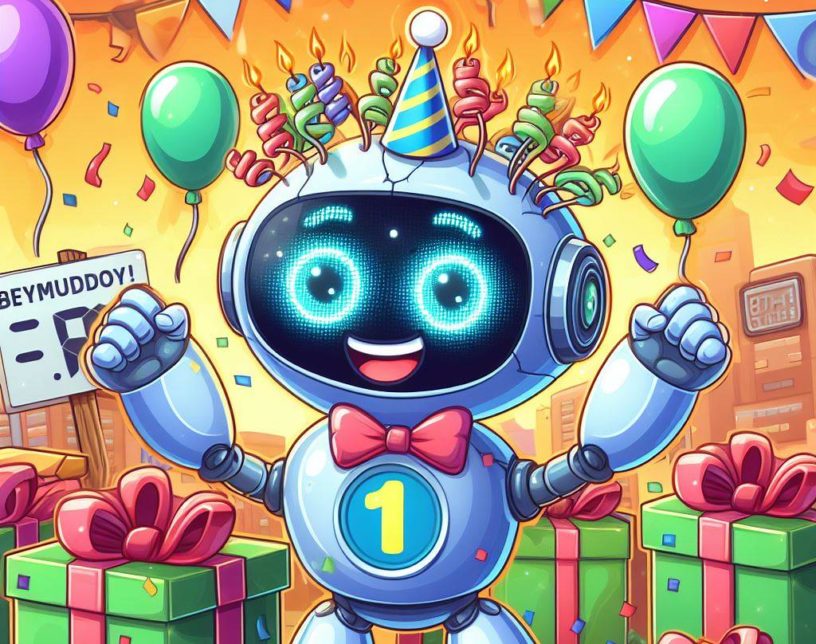OpenAI publicly released the first version of ChatGPT in late November 2022. In just one year, this generative AI has sparked a mini-revolution. Let's take a look back at a year filled with innovations.
The beginning
A year has passed, and it feels like it was just yesterday when OpenAI, the artificial intelligence laboratory (with prominent founders), made a significant breakthrough. On November 30, 2022, this once non-profit institution unveiled ChatGPT, its inaugural model designed for natural language interactions. Built upon GPT-3, this ambitious model aimed to democratize the company's language models for the general public while actively seeking user feedback to refine the system.
100 million users in two months
Any user worldwide could harness the power of a GPT through a streamlined graphical interface. The world of generative AI had just opened its doors to beginners. Even AI experts were surprised and amazed by its extraordinary capabilities.
It's no wonder there was such enthusiasm; in just five days, ChatGPT surpassed the million-user mark! Two months later, ChatGPT reached a new stratospheric milestone: 100 million users!! It's truly astounding, surpassing by far the excitement seen by social media platforms like Instagram, Facebook, Twitter, and more."
The Cost
This enthusiasm for the new tool, demanding considerable resources, leads to supporting immense costs. OpenAI found Microsoft as a partner, with the latter investing approximately 3 billion dollars from 2019 to 2022 and an additional 10 billion dollars in the first quarter of 2023.
The generative AI is exploding
Corporate interest in generative AI has literally exploded and has even become a trend. Generative AI is, of course, driven by the tech giants. Microsoft, Amazon, Google, Meta (And what about the metaverse? ^^) have entered the race for generative AI following the success of ChatGPT.
Waiting to see how the open-source communities will carve their space in the generative AI ecosystem. Will they manage to provide a credible alternative to proprietary solutions? I bet yes, it's just a matter of time to see how it unfolds.
Domains Disrupted by Generative AI in the Past Year
In just 1 year, ChatGPT has shaken up the ranks of numerous players. Let's focus on 5 domains significantly impacted by the generative AI revolution.
- Chatbots: In this domain, there is a before and an after ChatGPT. "Customized chatbots set to arrive on WhatsApp, Instagram, and Messenger very soon. Meanwhile, Elon Musk unveils Grok…
- Content Creation: Journalists, Bloggers, media monitoring professionals, and synthesizers, among others, are being impacted, with some already losing their jobs. As for book authors, they might not be on the brink of job loss, but AI could potentially enhance their productivity.
- Education: ChatGPT appears to be an open door to plagiarism and cheating. It can generate entire texts that students may use for their academic assignments. The question arises: is it still meaningful to complete such tasks if an AI can do it better than us?
- ....
It's impossible to list all the impacted domains, as they are numerous!
Conclusion
Generative AI, with the arrival of ChatGPT, marks a significant evolution and enhances productivity across various intellectual professions. It will likely take a few more years for us to fully capitalize on its potential. What will be the next revolution?





Leave a Reply